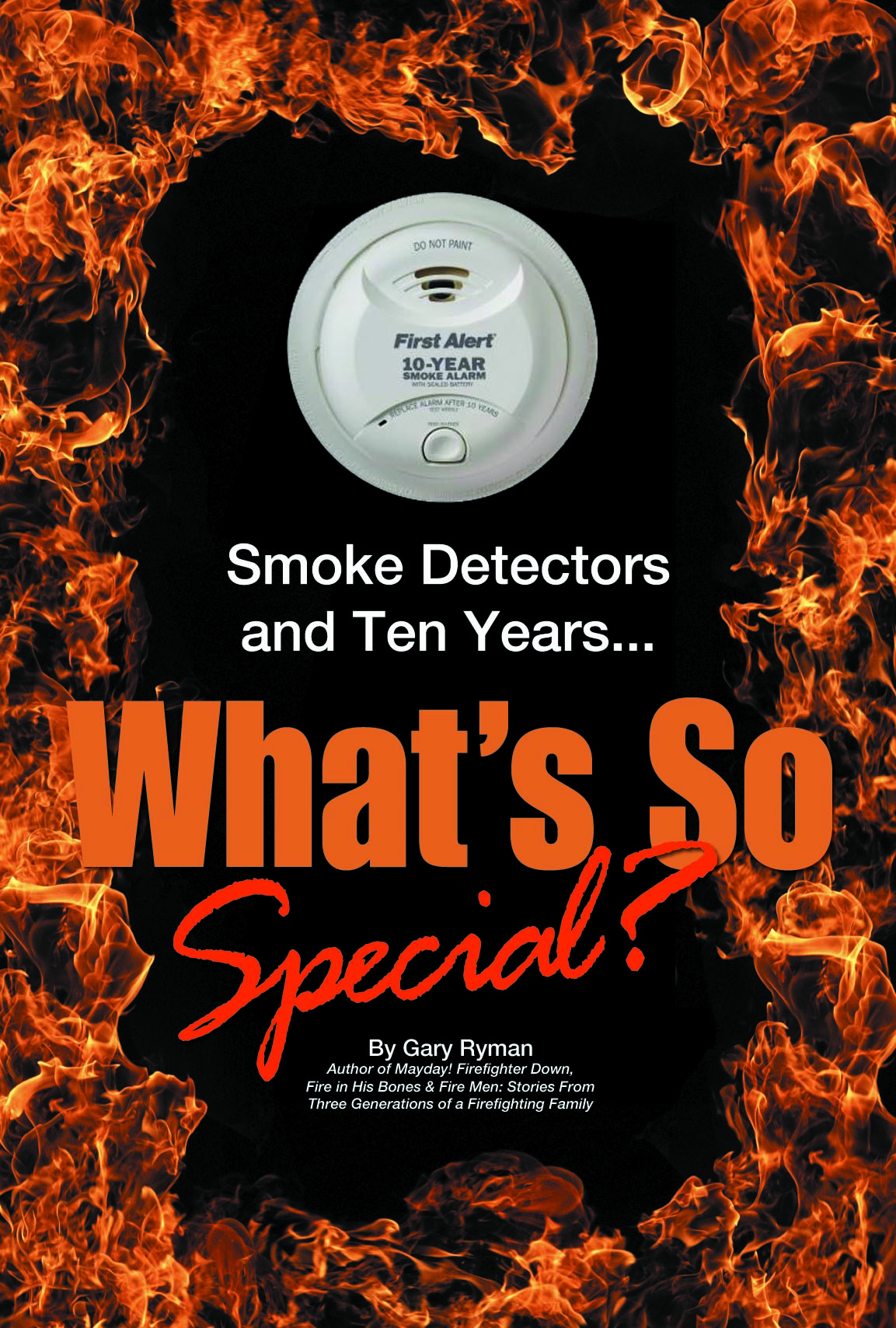By Gary Ryman
You know that smoke detector in the hallway? Yeah, the one you (hopefully) change the battery in once a year—the one that has been there for, oh, it seems like forever. If it’s over ten years old, and it probably is, that smoke detector may not work when you need it most.
Smoke detectors were never intended to last forever, and now new models designed for a ten-year life with sealed batteries which never need to be (and can’t be) changed are readily available. Some states now require the use of these “10-Year” smoke alarms. Maryland recently implemented a law that will require all apartments and homes to have this type of detector by 2018.
These new style detectors come with sealed lithium batteries which eliminates the need to get the ladder, kitchen chair, or stool out for that annual replacement. If you’re like many folks, it’s only the irritating beeps of the low battery alarm that remind you of the need for a new battery in any case. The 10-year detector batteries are non-replaceable, which forces the resident to replace the entire unit when the battery eventually expires.
So why should I buy one of those ten-year detectors? There’s nothing wrong with my existing smoke alarm. I even saw new 10-year batteries on line and at the local home center that I can use in my present detector. Problem solved. Well, not really. The National Association of State Fire Marshals has an answer.
“Just like any electrical appliance, the components of smoke alarms wear out over time. When a smoke alarm reaches ten years of use, the potential of failing to detect a fire increases substantially.” They note this applies to both hardwired and battery operated detectors. The National Fire Protection Association agrees, recommending replacing all smoke alarms at least every ten years.
So how many detectors should a home have and where should they be located? The answer can differ depending upon the home and local or state codes. National standards recommend that for new homes, a smoke alarm is provided in each bedroom, and at least one outside the bedroom area, but near enough to be heard in the bedrooms with the doors closed. In addition, there should be at least one detector on each floor level of a home, including basements. This is so regardless of where a fire starts, inside or outside a bedroom, the occupants receive prompt warning. For existing homes, the National Fire Protection Association (NFPA) recommends a detector outside the bedrooms and at least one on each level of the structure. Both they and the National Association of Fire Marshals agree that more is better, and providing the numbers called for in new construction is best.
There are two types of detection, photoelectric and ionization. They each look for different signs that combustion, a fire, has started, and both have advantages. Photoelectric detectors more readily pick up signs of a smoldering, slow developing fire. Ionization units are better for fires with open flames. The NFPA recommends homes have a combination of both installed. You can buy detectors of either type or dual sensor units, which use both technologies in a single detector body.
For those with hearing disabilities, special smoke alarms are available. These units use strobe lights and can have supplementary vibration devices to alert residents.
Where should detectors be mounted? Since smoke rises, high on ceilings or walls is best. On ceilings, detectors should be at least four inches from the closest wall. If installed on a wall, the detector should be at least four inches down from the ceiling, but no more than one foot. If your ceilings are pitched, the high point is the preferred location. Near doors or windows where air flow can interfere with their operation should be avoided, and never paint a detector. Paint, stickers, or other decorations can prevent the unit from functioning.
Still not sure what to do? Some fire departments have programs to assist homeowners with obtaining and installing detectors. At a minimum, your local department can be a source of good advice. For questions, call the local fire department non-emergency phone number.
Statistics vary, but all show that a frightening number of homes in which smoke detectors are installed have non-operational units. Installing 10-year sealed battery smoke detectors can help ensure functioning alarms are present and ready to help reduce the chances of tragedy.
November 2019 Issue


